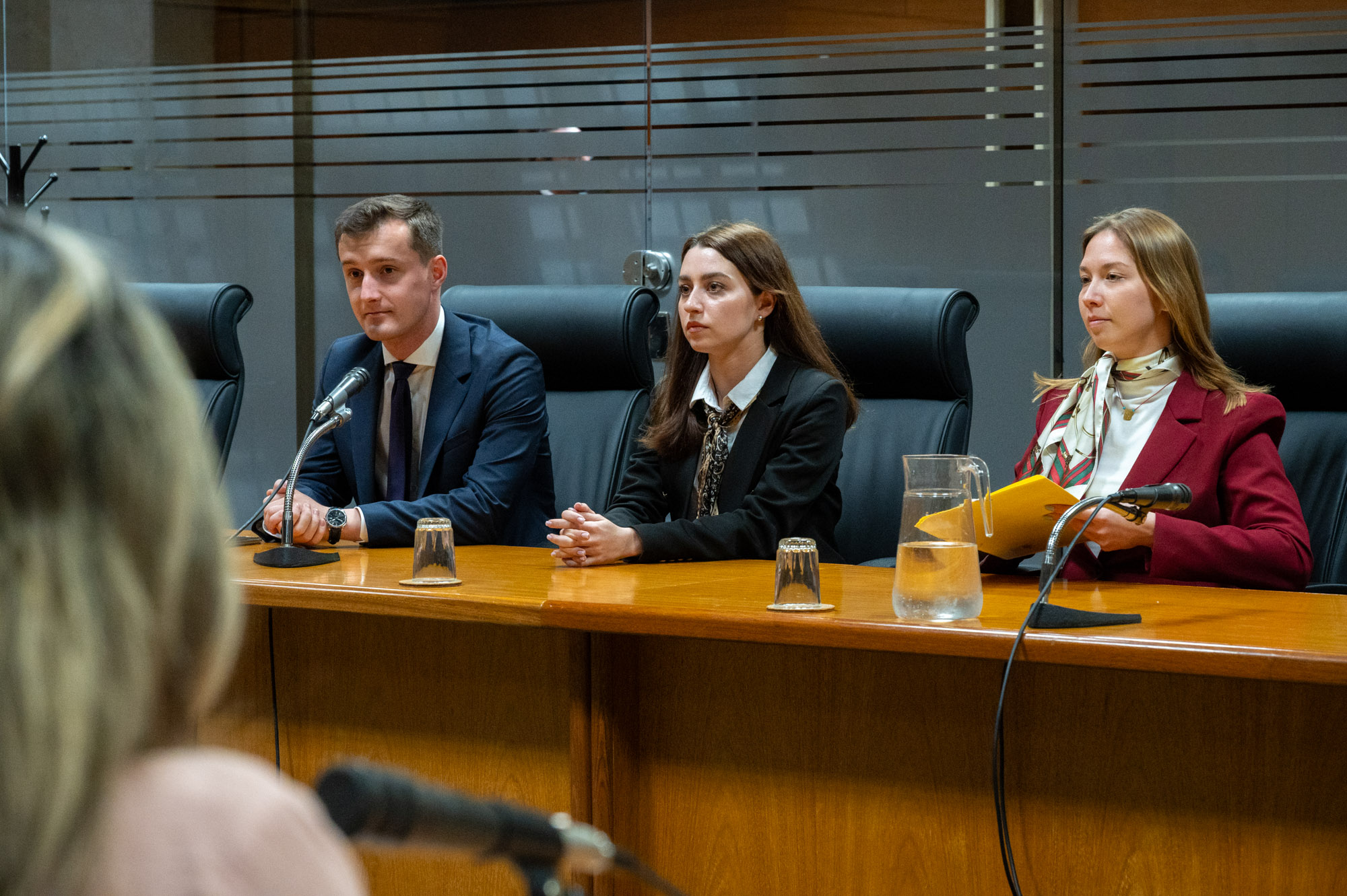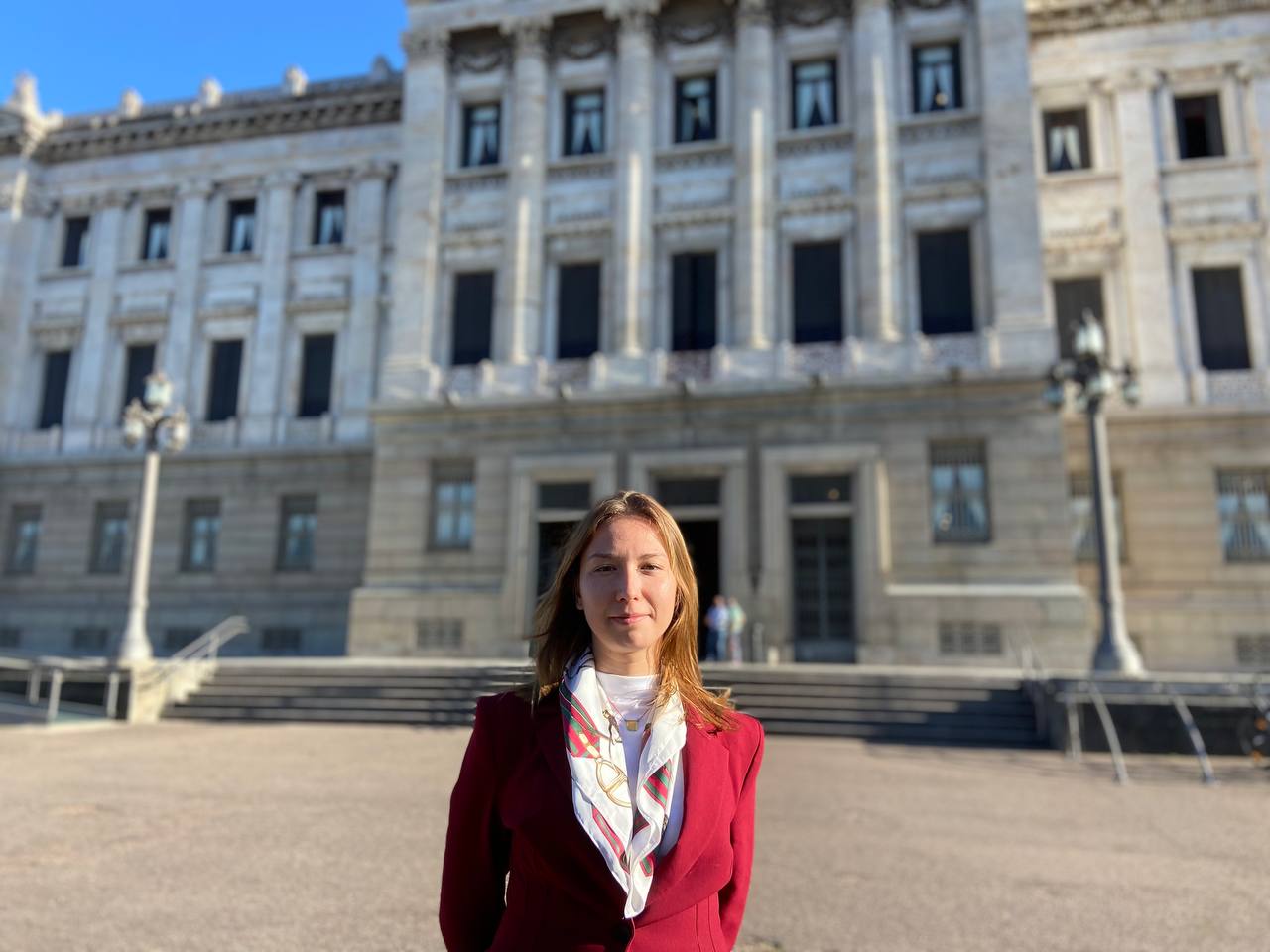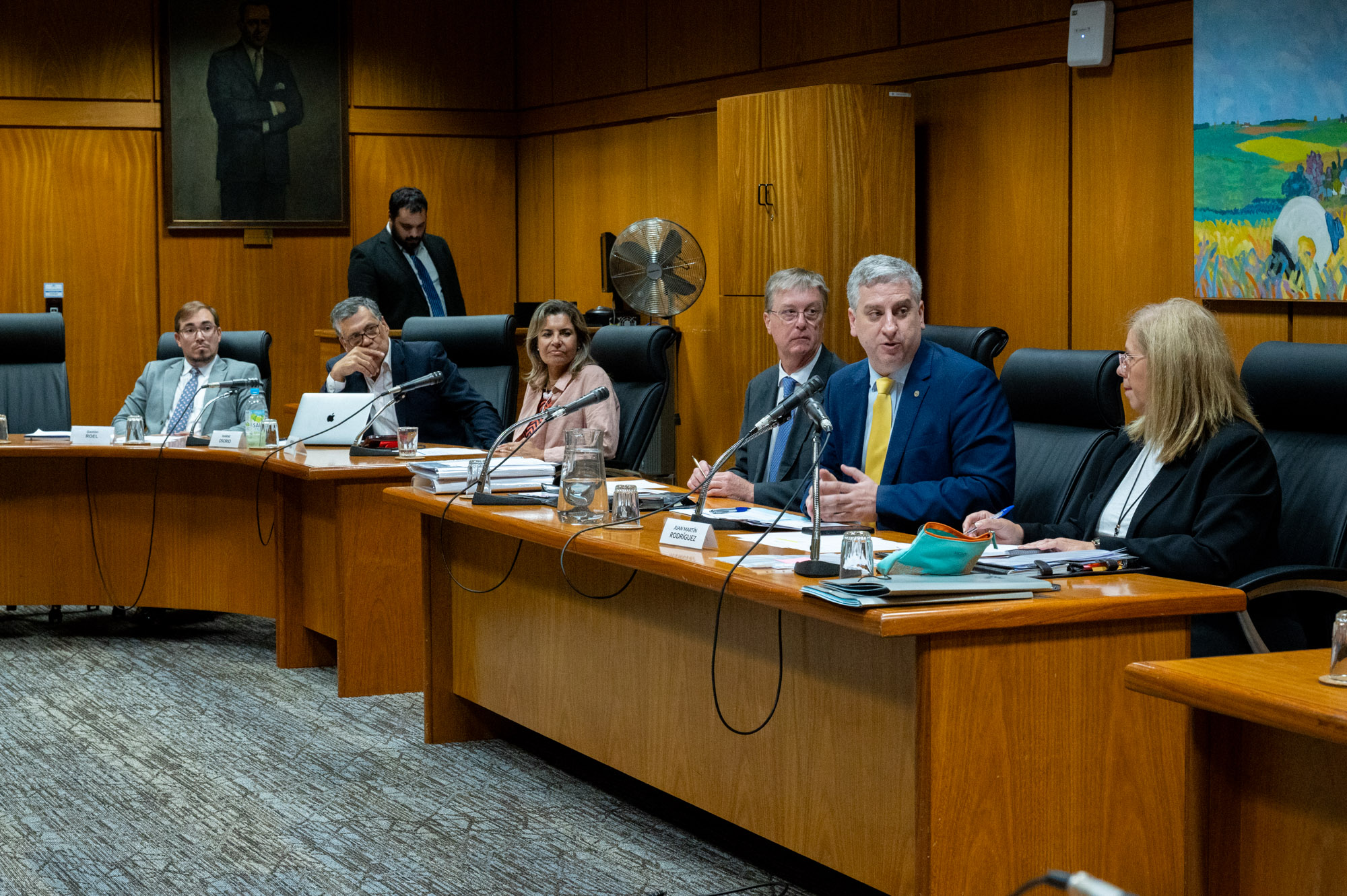ZMINA and TDC spoke about Russia’s international crimes against Ukraine in Uruguay
The Human Rights Centre ZMINA and the Transatlantic Dialogue Centre (TDC) visited Uruguay to talk about Russia’s armed aggression against Ukraine, documented international crimes and ways to achieve a just peace. ZMINA’s International Advocacy Manager Tetiana Zhukova, Coordinator of the Spain and Latin America Cooperation Program at the TDC Oleksandr Slyvchuk, and TDC Project Manager Alina Rohach joined the visit.
 Oleksandr Slyvchuk, Alina Rohach and Tetiana Zhukova
Oleksandr Slyvchuk, Alina Rohach and Tetiana ZhukovaUruguay is a small but respected democracy in the South American region, known for its consistent support of human rights, international law and stable law and order.
Although Uruguay abstained from voting on UN General Assembly resolution 68/262 in 2014, which reaffirmed Ukraine’s territorial integrity and recognised the annexation of Crimea as illegal, Uruguay’s position became clearer after the outbreak of full-scale war in 2022. The country supported key UN General Assembly resolutions in favour of Ukraine, including condemnation of the occupation of Ukrainian territories and voting for mechanisms to compensate for the damage caused by the war. Uruguay’s foreign policy has evolved from neutral caution to support for the international legal order.
 Tetiana Zhukova
Tetiana ZhukovaDuring the meetings, Tetiana Zhukova spoke about large-scale human rights violations in the Russian-occupied territories of Ukraine. She emphasised that the Prosecutor General’s Office of Ukraine has already registered more than 161,000 war crimes and crimes of aggression, including illegal arrests, torture, abductions and persecution of local residents. She paid particular attention to the issue of accountability: justice and restoration of victims’ rights must be key conditions for lasting peace.
Zhukova also handed over lists of civilian hostages – women, the elderly and local government representatives – who are still in Russian captivity, and stressed the need to release them as soon as possible, write letters to them and provide them with mentorship.
Uruguay experienced similar human rights violations during the military dictatorship of 1973-1985, when hundreds of people were victims of enforced disappearances. This experience shaped the understanding of the importance of justice and the remembrance of victims.
 International Affairs Committee of the Chamber of Deputies of Uruguay
International Affairs Committee of the Chamber of Deputies of UruguayThe activists met with the Vice President of Uruguay, Carolina Cosse and Senator Javier García, and spoke to the International Affairs Committee of the Chamber of Deputies of Uruguay.
The officials expressed solidarity with Ukraine and reaffirmed their support for Ukraine’s sovereignty and respect for international law. For a small country like Uruguay, effective international law is a matter of survival. When power is placed above law, those without large armies are the first to suffer. That is why for Uruguay, supporting Ukraine is about protecting its own future in a world where the rules work for everyone, regardless of size, location or geopolitical importance.
 Meeting with Senator Javier García
Meeting with Senator Javier GarcíaUkraine’s experience in combating human rights violations has proved to be close to Uruguay, which experienced disappearances and the need for justice. This creates a basis for mutual understanding and cooperation – not only at the level of political statements, but also in practical initiatives in the field of human rights protection, which is what Ukrainian activists called for.
The advocacy trip was organized by the Transatlantic Dialogue Centre (TDC) with the support of the International Renaissance Foundation.
If you have found a spelling error, please, notify us by selecting that text and pressing Ctrl+Enter.















